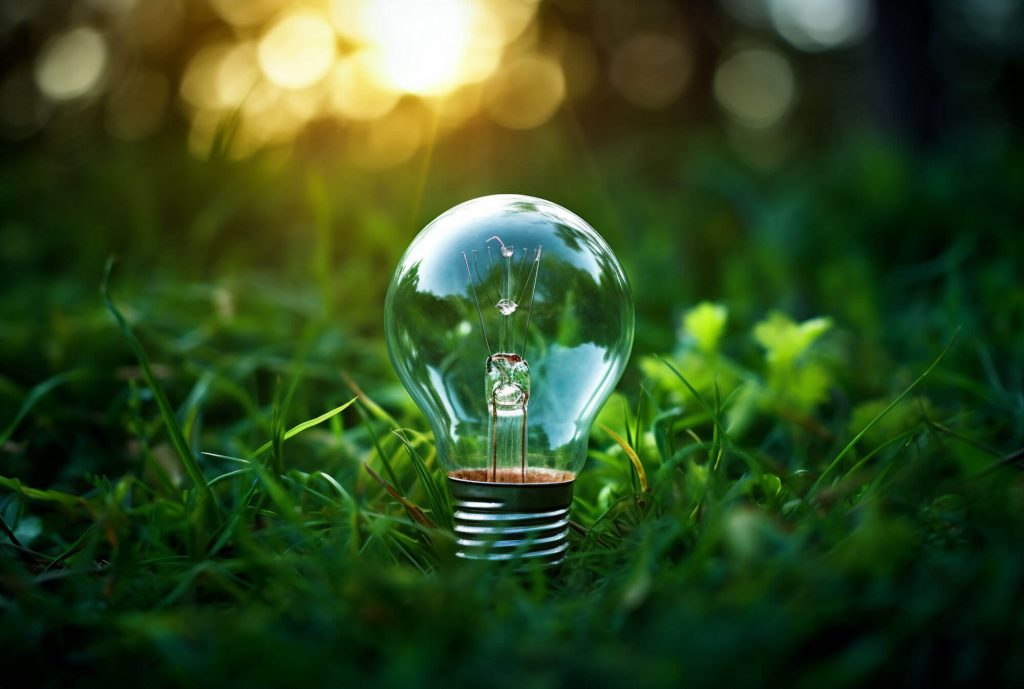 Texas stands at a critical crossroads in its energy future, and the latest legislative session has sent a clear message: solar energy is here to stay and grow. Amid several proposed bills aimed at slowing solar development, the Texas Legislature has instead passed Senate Bill 1202 (SB1202), a law designed to speed up solar permitting processes and ease the path for both residential and commercial solar projects across the state. And, as a byproduct, solar energy growth in the state. This forward-thinking legislation is a crucial step in ensuring Texas can meet its rapidly growing electricity demand while enhancing grid resilience and supporting clean energy goals.
Texas stands at a critical crossroads in its energy future, and the latest legislative session has sent a clear message: solar energy is here to stay and grow. Amid several proposed bills aimed at slowing solar development, the Texas Legislature has instead passed Senate Bill 1202 (SB1202), a law designed to speed up solar permitting processes and ease the path for both residential and commercial solar projects across the state. And, as a byproduct, solar energy growth in the state. This forward-thinking legislation is a crucial step in ensuring Texas can meet its rapidly growing electricity demand while enhancing grid resilience and supporting clean energy goals.
SB1202: Streamlining Solar Permitting for Faster Deployment
One of the biggest hurdles for solar project developers in Texas has long been the time-consuming permitting process. Typically, solar installations must navigate approvals from city or county authorities, which can delay projects for months and discourage smaller installers and homeowners.
SB1202 changes this by allowing licensed third-party entities to expedite permitting approvals, effectively bypassing slower municipal reviews (Texas Tribune, 2025). This shift not only accelerates solar adoption but empowers a growing network of qualified solar professionals to support Texans wanting to install clean energy systems.
For homeowners and commercial businesses, this means less red tape and quicker access to the benefits of solar power: cost savings, energy independence, and a smaller carbon footprint.
Why Solar Matters More Than Ever in Texas
Texas is no stranger to extreme weather and power grid challenges. The devastating winter storm in February 2021 left millions of Texans without electricity or water for days, underscoring the urgent need for more reliable and diversified energy sources. Solar power, paired with battery energy storage, offers a way to harden the grid and provide backup power during outages (Texas Tribune, 2025).
Unlike natural gas or coal plants, solar installations can be deployed rapidly and closer to where electricity is consumed: right at homes and businesses. This reduces dependence on long, vulnerable transmission lines. According to ERCOT, Texas’s grid operator, the state’s power demand is expected to double by 2030, making fast, scalable solutions like solar energy growth essential to meeting future energy needs (Texas Tribune, 2025).
 Battling Legislative Efforts to Stall Solar Energy Growth Progress
Battling Legislative Efforts to Stall Solar Energy Growth Progress
While SB1202 celebrates progress, the Texas Legislature also saw multiple bills attempting to slow or complicate solar energy growth. All of these Texas SB bills failed to pass, signaling broad legislative support for solar’s role in Texas’s energy future.
- SB 715: Would have required existing solar systems to install backup power sources, did not pass. This bill risked imposing costly and unnecessary upgrades on solar owners.
- SB 819: Impose extra permitting requirements on wind and solar projects over 10 megawatts, potentially creating significant delays and administrative burdens for developers.
- SB 388: Mandate that at least 50% of dispatchable energy generation come from sources other than battery energy storage, pushing back against battery storage technologies.
The defeat of these bills reflects a recognition among lawmakers that slowing solar development only hurts Texans, especially as the grid faces increasing demands and climate-driven challenges (Texas Tribune, 2025).
Texas’s Leading Role in Solar Energy Storage
Texas is a powerhouse in solar energy, second only to California in the United States. Texas surpasses every other state combined when it comes to solar energy storage capacity (Power Engineering, 2025). This is no accident; the combination of abundant sunshine, vast open spaces, and an entrepreneurial spirit has helped Texas become a national leader in adopting solar plus battery storage systems for homeowners and commercial businesses.
Battery storage (or BESS) is a game-changer because it stores excess solar energy generated during the day for use at night or during power disruptions. This technology was a crucial factor in avoiding even more severe outages during past storms and is expected to play a vital role in Texas’s energy resilience strategy going forward (Utility Dive, 2025).
Avoiding the Pitfalls of Other Energy Sources
While natural gas remains a major part of Texas’s energy mix, recent trends highlight growing challenges with relying too heavily on fossil fuels. Long lead times for manufacturing and delivering turbines and other electrical equipment have stalled some proposed gas plant projects, with supply chain bottlenecks stretching for years (Power Engineering, 2025; Utility Dive, 2025). These delays make fossil fuel power plants less agile and slow to respond to the state’s rapid demand growth.
In contrast, solar projects—especially distributed systems on homes and commercial buildings—can be deployed much faster, often in a matter of months. This agility means solar can help bridge the gap while new infrastructure or upgrades for other generation sources catch up, effectively “cutting out the middleman” of large, centralized power plants and their complex supply chains.
A Strategic Fit in Texas’s Clean Energy Landscape
Senate Bill 1202 (SB1202) is more than just a legislative measure; it represents a pivotal alignment with Texas’s evolving clean energy strategy. By facilitating faster and more efficient solar and energy storage installations, SB1202 complements and enhances the state’s broader efforts to integrate renewable energy sources into its power grid.
 Accelerating Renewable Energy Deployment
Accelerating Renewable Energy Deployment
Texas has long been a leader in renewable energy, particularly in wind and solar power. The state’s commitment to expanding its renewable energy capacity is evident in initiatives aimed at reducing barriers to clean energy adoption. SB1202 directly supports this commitment by streamlining the permitting process for residential solar and battery systems. By allowing licensed third parties to expedite approvals, the bill reduces delays that often hinder the deployment of renewable energy technologies (pv-magazine-usa.com, 2025).
Enhancing Grid Resilience
The integration of distributed energy resources, such as rooftop solar panels and home battery systems, plays a crucial role in enhancing the resilience of Texas’s power grid. SB1202 facilitates this integration by simplifying the approval process for these systems, enabling homeowners to contribute to grid stability. This decentralized approach helps mitigate the impact of outages and supports the state’s efforts to modernize its energy infrastructure.
Supporting Economic Growth and Job Creation
The clean energy sector is a significant driver of economic growth in Texas. By reducing permitting barriers, SB1202 encourages investment in solar and energy storage projects, leading to job creation and economic development. The bill aligns with the state’s goals of fostering innovation and supporting industries that contribute to a sustainable energy future.
Aligning with Public Support for Clean Energy
Public opinion in Texas strongly favors the expansion of renewable energy. A 2024 survey found that 63% of Texans support an “all of the above” approach to energy policy, which includes a mix of renewable and traditional energy sources (txbiz.org, 2024). SB1202 reflects this public sentiment by promoting policies that facilitate the growth of clean energy technologies.
Looking Ahead: What SB1202 Means for Texans
With less than 20 days for the governor to act before SB1202 automatically takes effect on September 1, 2025, the solar industry and Texans alike are hopeful this bill will usher in a new era of streamlined solar growth (Texas Tribune, 2025). By cutting permitting delays and empowering qualified third parties, SB1202 removes one of the most frustrating barriers for solar adoption. This legislative win positions Texas to better face future energy challenges, promote economic development in clean energy sectors, and help families and businesses reduce their energy bills—all while advancing environmental sustainability.
References
Power Engineering. (2025). Long lead times are dooming some proposed gas plant projects. Retrieved from https://www.power-eng.com/gas/turbines/long-lead-times-are-dooming-some-proposed-gas-plant-projects/
Texas Tribune. (2025, March 6). Texas Legislature keeps solar strong, rejecting bills to slow renewable projects. Retrieved from https://www.texastribune.org/2025/03/06/texas-legislature-energy-renewables-power-grid/
Utility Dive. (2025). Reshore electrical equipment backlogs transform transformer and breaker availability. Retrieved from https://www.utilitydive.com/news/reshore-electrical-equipment-backlogs-transformer-breaker-nema/749265/
PV Magazine. (2025). Texas Legislature passes bill to expedite solar energy storage permitting. Retrieved from https://pv-magazine-usa.com/2025/05/28/texas-legislature-passes-bill-to-expedite-solar-energy-storage-permitting/
TX Biz. (2024). Texas voters are clear: we need an all of the above approach to energy policy. Retrieved from https://www.txbiz.org/post/texas-voters-are-clear-we-need-an-all-of-the-above-approach-to-energy-policy

 Battling Legislative Efforts to Stall Solar Energy Growth Progress
Battling Legislative Efforts to Stall Solar Energy Growth Progress Accelerating Renewable Energy Deployment
Accelerating Renewable Energy Deployment